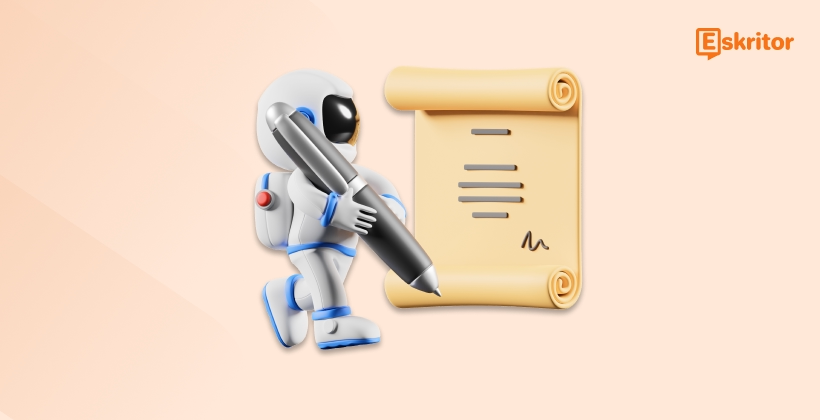How AI Writers Are Transforming Content Creation
How AI Writers Are Transforming Content Creation
Blog Article
Why AI Editing is Revolutionizing Proofreading
As artificial intelligence (AI) evolves, it continues to revolutionize exactly how we strategy modern modifying practices. From syntax correction instruments to sophisticated material era tools, AI Editing is reshaping the way writers, authors, and makers refine their work. That blog examines the role AI plays in modern editing and the affect it has across industries.

AI-Powered Tools Major the Cost
AI-powered tools have become an crucial part of editing workflows. Application fueled by normal language handling (NLP) and unit learning may do tasks like grammar checks, stylistic suggestions, and word restructuring with unbelievable speed and accuracy.
For instance, AI-based grammar checkers may identify errors that the human eye may possibly overlook, such as subject-verb contract issues or dropped modifiers. Equally, model changes generated by AI ensure that tone and flow arrange with the intended market, which can be priceless for skilled editors.
These tools aren't just restricted to traditional grammar corrections. They can handle increasing readability, transforming inactive style to productive style, and even paraphrasing whole paragraphs without adjusting the meaning.
Efficiency Matches Time Savings
Reports reveal that the usage of AI instruments may lower modifying time by as much as 30%. As opposed to poring over every phrase manually, publishers may focus their initiatives on innovative and proper aspects of content. That shift allows specialists to control higher volumes of text in smaller intervals, which will be particularly valuable for industries like publishing and electronic marketing.
Also, predictive AI characteristics may spotlight repeating problems, helping writers improve their abilities over time. For businesses, this translates to less sources used on changes and more finished results from the comfort of the start.
Increasing Availability and Globalization
AI's position in modern editing runs beyond efficiency. Advanced translation and localization resources allow designers to change content seamlessly for global audiences, deteriorating language barriers with precision. This technology guarantees that exactly the same information may resonate with cultures worldwide while preserving its authenticity.
AI also raises inclusivity criteria by increasing supply in content. As an example, formulas may recognize possibly non-inclusive language and recommend alternatives. This capability allows publishers to improve writing so it resonates with diverse audiences.

Impressive a Harmony Between AI and Human Imagination
While AI excels in speed and precision, it does not change individual editors. Models usually lack the capacity to understand nuance, sensation, or cultural context fully. The ideal process combines AI's efficiency with individual imagination and information, causing really exemplary work.
By leveraging these technologies in modern modifying techniques, designers and writers alike may create high-quality content that aligns with the fast-paced requirements of today's electronic world. AI will be the future of editing, nevertheless the human touch will always be needed for storytelling and connection. Report this page